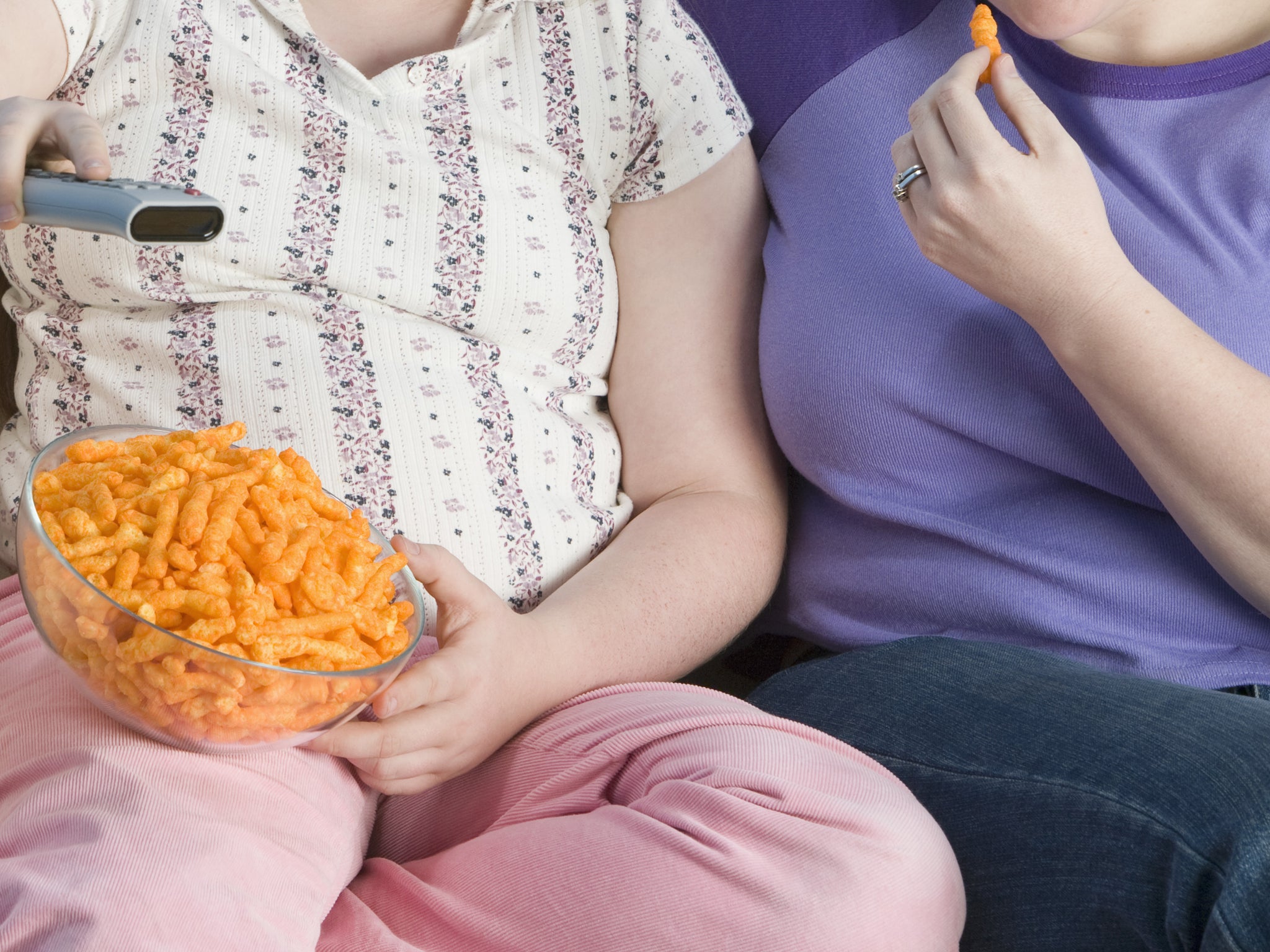We used to describe poor children as 'skinny runts' - now it's the opposite: Minister says deprived families are more likely to be obese
Public health minister Anna Soubry claims it is easy to identify the poorest people in society by their weight

Poor people are easy to identify because they are more likely to be fat, the public health minister has said.
Anna Soubry said that when she was at school it would be easy to pick out the children from deprived backgrounds because they tended to be "skinny runts". Now, she said, the low cost and easy availability of junk food meant that the opposite was true.
In an interview with The Daily Telegraph the MP for Broxtowe in Nottinghamshire said: "When I go to my constituency, in fact when I walk around, you can almost now tell somebody's background by their weight.
"Obviously, not everybody who is overweight comes from deprived backgrounds but that's where the propensity lies."
She described seeing children in her constituency buying 'breakfasts' of crisps and fizzy drinks on the way to school, while in Westminster she sees parents taking their children to fast food shops to buy them unhealthy "breakfast buns".
"They are not rich people, taking their children to school and they buy them breakfast.
"It is a heartbreaking fact that people who are some of the most deprived in our society are living on an inadequate diet. But this time it’s an abundance of bad food."
Miss Soubry also blamed a culture of "TV dinners" for eroding traditional family structures, making a mealtimes sat a dinner table a thing of the past.
According to Department of Health figures, the poorest children are almost twice as likely to be obese than the richest. Government figures published last month showed that 24.3 per cent of the most deprived 11 year-olds in England were obese, compared with just 13.7 per cent of children from the wealthiest homes.
Imran Hussain, head of policy at Child Poverty Action Group, said: "Obesity, in this country and in other developed countries, is linked to deprivation.
"Rather than blaming parents, ministers should look at the piles and piles of evidence that make it absolutely clear that the real reason why our obesity problem is going to get bigger in the years ahead is because our child poverty problem is going to get much bigger as a result of the Government's own policies.
"Poor children are much more likely to miss out on healthy food on cost grounds than children living in households with average incomes, and research shows that when the incomes of poor families rise, parents spend the gains on improving the diets of their children through buying fresh fruit.
"With low income families being hurt by stagnating wages, cuts in Government support for the low paid or those out of work and soaring prices, the obesity problem and the pressures on the NHS are likely to worsen."
Shadow public health minister Diane Abbott said: "The Government is doing nothing to tackle Britain's obesity crisis. It is clear that their voluntary approach is not working. Too many large retailers aren't signed up to the Responsibility Deal and ministers have let their expert public health group collapse.
"We need to open our minds to new approaches in tackling child obesity and Labour wants to lead this debate. That is why we have opened a consultation on the possible need for new limits on sugar, fats and salts in children's food.
"If the Government fails to act we will continue storing up huge problems for the country and the NHS in the long term."
Join our commenting forum
Join thought-provoking conversations, follow other Independent readers and see their replies
Comments